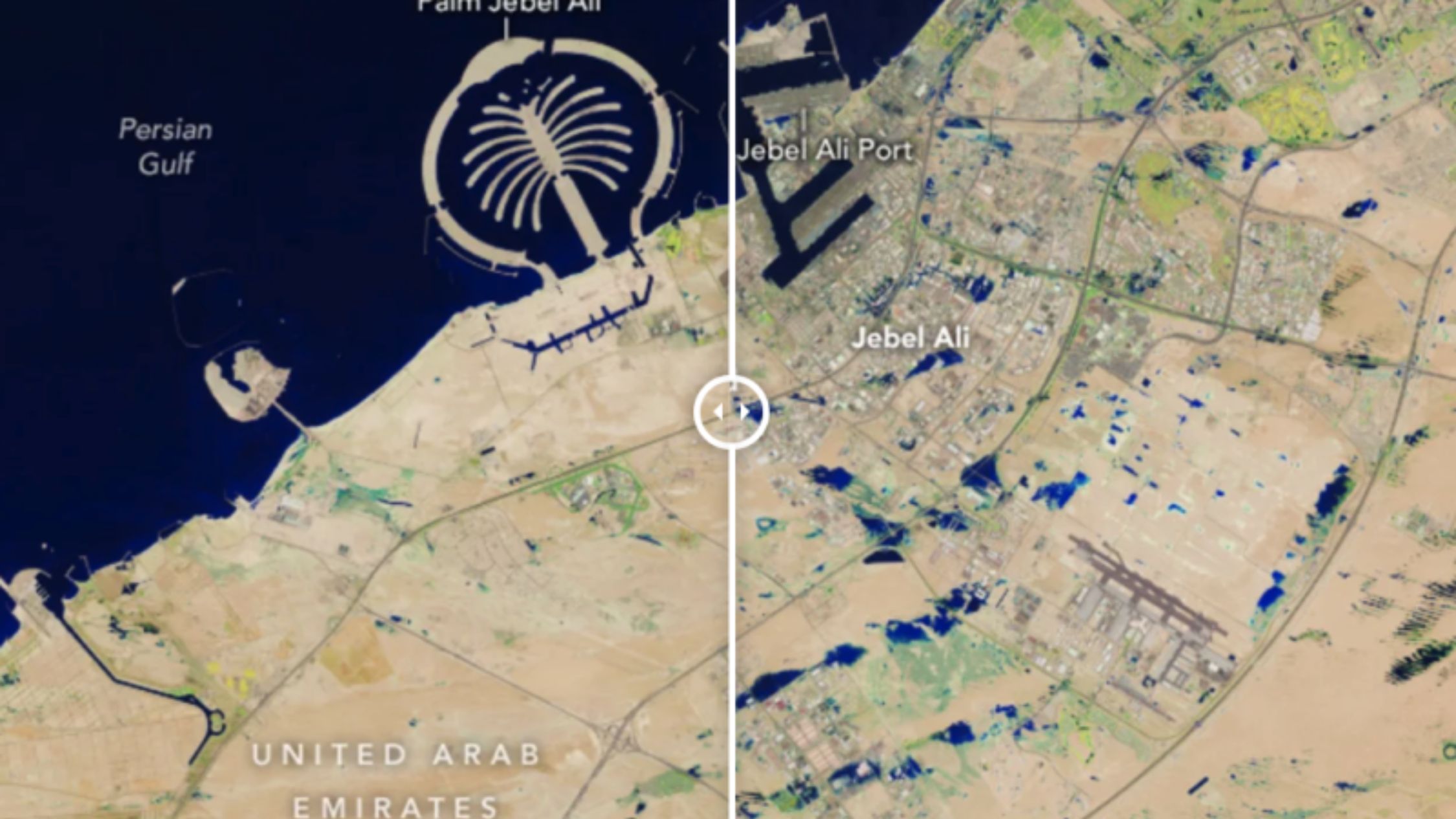In the scorching sun, Felipe Elvira surveys the branches of olive trees that stretch as far as the eye can see on a dusty mountain in southern Spain. “There are no olives in these. They’re dry,” he throws worriedly.
The 68-year-old olive farmer, who owns a 100-hectare farm in Jaen, the cradle of olive oil in Andalusia, is at risk of losing most of his harvest due to the country’s severe drought.
“Here we’re used to drought, but to this extent, not,” sighs this sixty-year-old with white hair and eyebrows in a buttoned-up shirt. “Earlier, 800 liters of water fell per square metre, per year. Now it is going to be 300, 400 litres, nothing…rainfall is decreasing,” he laments.
On Europe’s front line in facing the effects of climate change, Spain has experienced three exceptional heat waves since May, weakening crops further than an already dry winter.
“Olive trees are trees that are very resistant to water stress,” explains Juan Carlos Hervas, agricultural engineer at the COAG agricultural association. But when there’s extreme heat “they activate physiological mechanisms to protect themselves: they don’t die, but reproduction doesn’t take place,” he adds.
Very bad news for olive growers in the region. “In dry land (without irrigation), the average production of the last five years will not reach 20%. And in irrigated land, it will be 50 or 60%,” predicts the technician.
“Dramatic Situation”
Water balance is, in fact, anemic. “The water supply in Andalucia depends on the Guadalquivir basin, which supplies almost the entire region”, which is in an “absolutely dramatic situation”, underlines Rosario Jimenez, professor of hydrology at the John University.
According to the Ministry of Environmental Change, the reserves provided by the river and its tributaries are currently only 30% of their capacity. Some reservoirs have “reduced to less than 10%, or are already practically dry,” the researcher asserts.
The effects of climate change and its extreme weather events have been observed by farmers in the region for years.
“Every time it rains less than before, and when it rains, it flows massively: it creates a huge flow, and the land doesn’t have time to store it,” explains Juan Carlos Hervás.
According to a study published in early July in the journal Nature Geoscience, the Iberian Peninsula has not been this dry for a millennium. The phenomenon will continue to worsen, with the risk of severely affecting some crops such as vineyards and olive trees.
A prospect that could be devastating in Spain, which produces almost half of the planet’s olive oil, with annual exports of 3.6 billion euros.
“Many towns in the province depend on the olive tree. If it is no longer productive, there is not much income,” emphasizes Hervas.
“The Countdown Begins”
According to COAG, seven out of ten hectares in Spain are currently cultivated without irrigation. But with increasing temperatures, 80% of the arid lands in Andalucía are no longer “suitable for growing olive groves,” at least for some varieties.
The quality of the produce may also decrease as farmers have to “pre-harvest” less mature olives, the union insists in a statement titled “The Countdown Begins”.
Some may be tempted to increase the number of irrigated lands to reduce losses. At a time when southern Spain is already targeting over-exploitation of water in intensive crops, this solution will further weaken reserves.
Today, “agriculture takes 70 or 80% of resources,” says Rosario Jimenez, who says he fears water shortages in some cities that already face “specific water cuts.”
From his land, Felipe knows the Elvira problem. “The aquifer is going to dry up, everyone needs water”, acknowledges the farmer, who is “not very optimistic” about the future: “Honestly, I don’t know what we’re going to do.”


:quality(85)/cloudfront-us-east-1.images.arcpublishing.com/infobae/VWWQ37HV5ZERLPFWQKUG6JD2CQ.jpg)
:quality(85)/cloudfront-us-east-1.images.arcpublishing.com/infobae/DVLWJKBJAVKNNQUXRVYQP4UHUY.jpg)
:quality(85)/cloudfront-us-east-1.images.arcpublishing.com/infobae/FVNTXGAGFIT3KQWJH5HYR4JCOY.jpg)
